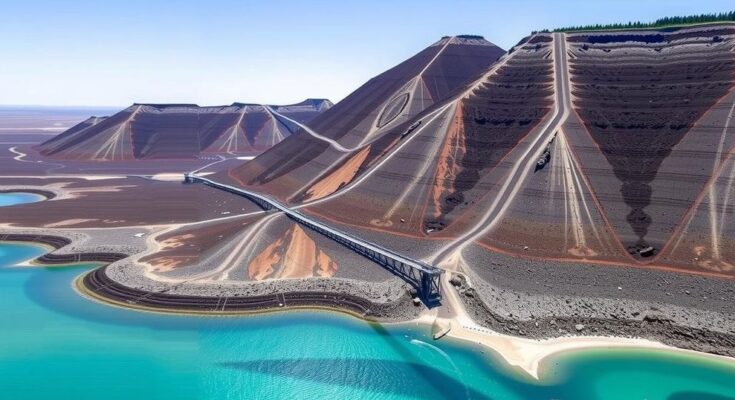Syrah Resources has obtained a $53 million loan waiver from the DFC following protests that impacted its Balama mine in Mozambique. The company has not defaulted on its loan obligations despite operational disruptions. Production has been halted since July 2023 due to low demand, with plans to potentially restart in late 2024 if conditions permit.
Syrah Resources, an Australian graphite producer, has successfully secured a $53 million loan waiver from the U.S. International Development Finance Corporation (DFC). This development follows the company’s declaration of force majeure due to protests that restricted access to its Balama mine in Mozambique. Despite triggering events of default on certain loans, Syrah confirmed that it has not defaulted on its payment obligations related to its $150 million DFC loan and its $102 million loan from the U.S. Department of Energy. The waiver facilitates essential working capital for the Balama operation, although production at the site has been halted since July 2023 due to insufficient demand.
The events surrounding Syrah Resources stem from ongoing political and social unrest in Mozambique, which has significantly impacted operations at the Balama graphite mine. Protests intensified following the ruling by Mozambique’s highest court to uphold the results of the October general election, returning the Frelimo party to power. The company had to cease production in mid-2023 due to a surplus of inventory combined with low demand for graphite fines, raising concerns about operational continuity in an already challenging environment. The DFC’s involvement is crucial for Syrah’s financial stability during this disruption.
In summary, Syrah Resources has navigated a critical situation by securing a financial waiver that will allow it to stabilize its operations at the Balama graphite mine amid ongoing protests and economic challenges in Mozambique. The company is currently awaiting the appropriate conditions to resume graphite production, which is vital for its ability to meet market demand and fulfill loan agreements. The circumstances highlight the intricate relationship between social unrest and resource production in regions with volatile political landscapes.
Original Source: www.argusmedia.com




